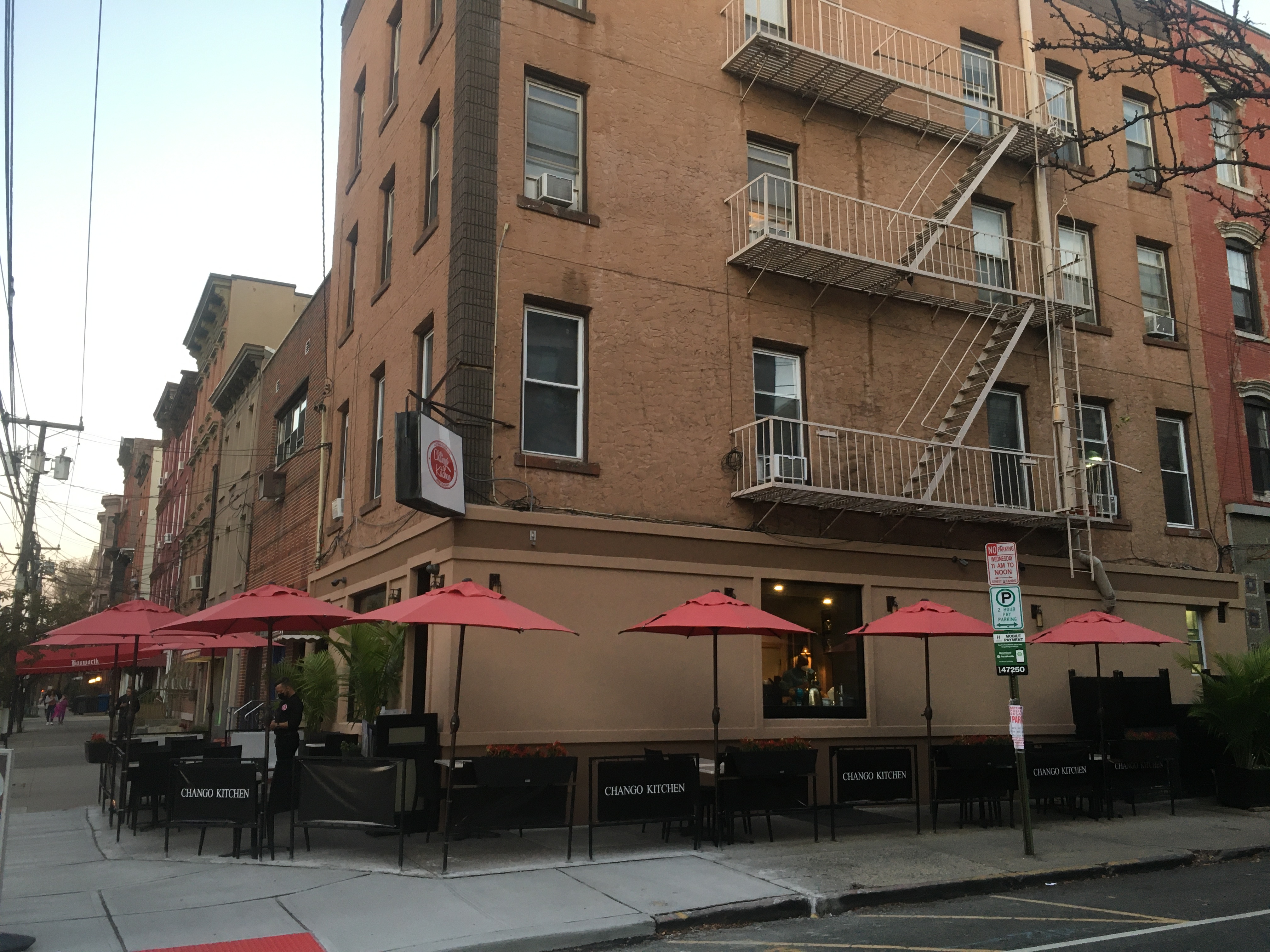Hoboken City Council postponed a vote at the Wednesday meeting on a zoning ordinance that could encourage new businesses and development on street corners in Hoboken’s residential neighborhoods.
The corner-lot retail ordinance, which was previously tabled at the November 18 city council meeting, includes incentives for developers to build new retail on corner-lots. It also includes a provision that the city’s planning board warns could encourage the destruction of existing buildings in favor of expensive, larger apartments.
The lawmakers plan to reintroduce the ordinance in January.
The ordinance, which has been debated since early September, provides a significant increase to the maximum lot coverage for businesses on the ground floor of a corner-lot building in two different residential zones — R-2 and R-3. The ordinance also contains a ‘height bonus’ provision that allows for increased floor-to-ceiling heights for new businesses and that encourages tearing down and replacing existing residential units with bigger, pricier ones.
With more space in a property lot to build, and with development bonuses awarded to new construction, Hoboken’s corner-lot properties could possibly be more valuable to aspiring business owners and residential developers.
Planning Board letter warning of “unintended consequences”
The city council was set to vote on the corner-lot retail ordinance at the last meeting. But hours before the vote, the Hoboken Planning Board sent a letter to the city council, warning the ordinance “may have the unintended consequences of encouraging the razing of buildings and the depletion of smaller units in favor of larger, more expensive units.” The planning board suggested that “those provisions could be amended to avoid those results.”
At the last city council meeting, Councilmember Tiffanie Fisher said that the city council should take the planning board’s concerns seriously. Pointing to existing city laws, Fisher said businesses can already build on corner lots. This ordinance, she said, is a simply good deal for developers.
“Anyone, if given that opportunity to increase their economics on an older building, would be incentivized to tear them down,” Fisher said about the ‘height bonus’ provision. “The question is who’s living in these corner properties. Because I do think displacement is an issue for Hoboken. R-2 and R-3 are where we do see more of the rent-controlled older units.”
Fisher added that the city council had to undo a similar provision in the R-1 zone because it “had suddenly incentivized teardowns of properties.”
“We’re basically taking that provision out of R-1 that we just undid, and we’re now putting in R-2 and R-3 on the corners. And are we okay with that? This Council might be okay with that, but we also, as a Council, voted to remove it a year ago because of the tear-downs that ended up happening.”
Councilmember Mike DeFusco, who proposed the ordinance, said that Fisher was “fear mongering.” “If you don’t agree with the policy, vote it down. But let’s not pretend that we’re trying to intentionally displace people here because that’s what’s wrong with politics, and that’s what’s wrong with this city. We’re unwilling to take positive planning steps to help small businesses,” DeFusco said.
Corner-lot retail has been a long-term priority for Hoboken
Corner-lot retail has been a goal in the works for years. In the ‘2018 Land Use Element,’ one of Hoboken’s master documents describing the city’s long-term land use goals, city officials said increasing corner-lot retail in residential neighborhoods is a long-term priority. “Allowing limited, small-scale neighborhood retail that serves everyday needs will help to reinforce Hoboken’s residential neighborhoods,” city officials wrote. Corner-lot retail dispersed through Hoboken’s neighborhoods is supposed to contribute to this goal as well, giving residents easier access to business.
This is because, according to city officials, “the need for all residents to have convenient access to neighborhood commercial amenities was a consistent theme that emerged from the public outreach activities conducted for the 2018 Reexamination Report and Land Use Element.” A need, the community said, that’s not being fulfilled. Pointing to Washington Street and downtown Hoboken as the city’s primary commercial district, city officials said there are no “designated ‘retail corridors’ in the southern, northern, and western portions of the city.” City officials acknowledged the growing clusters of small businesses on First Street, Fourteenth Street, and Jackson Street, but said city law has yet to catch up with and support this growth.
At a September meeting, the city council narrowly approved the first version of this ordinance, with three of nine councilmembers voting it down, before sending it to the planning board for their approval. The city’s planning board reviewed the ordinance in early October and said that corner-lot business in residential areas “is consistent” with the city’s long-term goals, citing the Hoboken Master Plan and Land Use documents.
Prior to the planning board’s recommendation, George Wheatle Williams, an urban planner, wrote a nine-page letter to the city’s planning board, encouraging the board to move forward with the plan. Hoboken’s strategic plans, Williams said, “specifically recommend revisions to [city law] in support of ground floor commercial uses in the R-2 & R-3 Zone Districts; particularly on corner lots.” The city should stop moving forward with corner-lot retail if they become a major issue as they start to appear, Williams said.

Be First to Comment